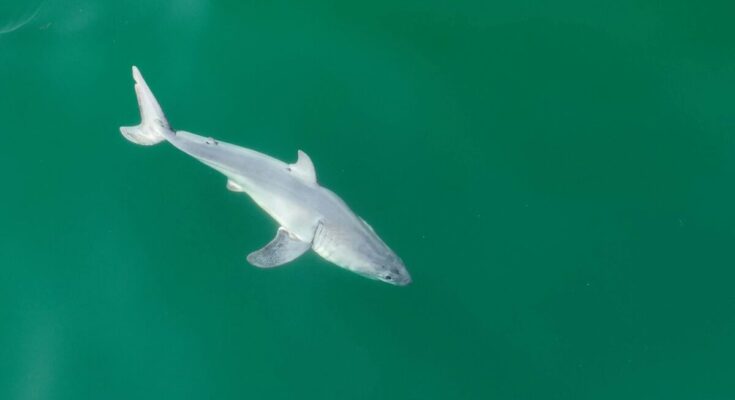Will drones be more effective than traditional ways of fighting sharks? The Australian state of Queensland will now use small unmanned flying devices as a “permanent” feature to monitor its beaches for attacks, according to The Guardian.
The announcement follows a four-year trial carried out by the Department for Primary Industries. During this period, 676 shark sightings were made using drones, including 190 shark sightings over 2 meters, which is significantly higher than shark sightings captured by other shark control programs (nets and fishing lines).
“Negligible impact on the environment”
“Drones provide high-definition aerial views of vast expanses of ocean, enabling real-time detection of sharks, but have little impact on the environment and non-target species,” the ministry report said.
Drones are “an excellent surveillance tool”, Rob Adsett, chief drone pilot at Surf Life Saving Queensland, told the British daily.
The ability to see and track sharks in real time allows rescuers to manage safety risks without “too much caution.” “In the past, if there was a report of a shark, we closed the beach for an hour, but it turned out there were no sharks,” he explained.
Most importantly, drone surveillance has a much smaller environmental impact than anti-shark nets. During the 4-year trial period, at least 120 non-target species were caught in the nets, including turtles, whales and dolphins, and almost half died instantly.



